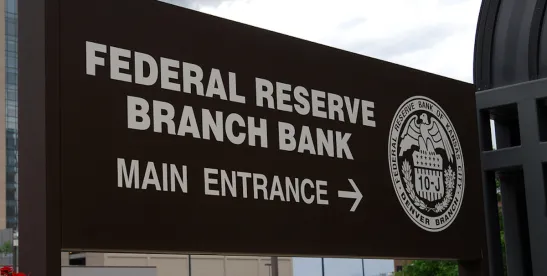On Tuesday, September 10, the Federal Reserve announced a reproposal of the much discussed and awaited Basel III Endgame. However, before we dive into the reproposal, it is important to take a step back and look at how we got here. Basel III was originally developed in response to the financial crisis of 2007 to 2009. Although it is typical for banks to decide for themselves how much capital to hold, regulations require a minimum threshold regardless. It is in the best interest of banks to minimize the amount of capital needed in order to increase their profits and lending capability. Regulators, on the other hand, believe that if a bank holds more capital, it is less likely to take unreasonable risk, thus potentially minimizing the risk of a government bailout in times of a financial crisis. The purpose of Basel III was to ensure stability and strength in the banking industry and focus on the capital requirements of banks, taking into account credit, operational and market risk. For the regulators, the issue is how much capital is enough to ensure that the banking system is strong while also not imposing significant hurdles for the banks. Basel III regulations took several years to form with the intent that the countries involved would follow the general framework but develop their rules as needed over time.
In July 2023, the Federal Reserve published a proposal of revisions to Basel III Endgame, partly in response to the failure of Silicon Valley Bank and First Republic Bank. The proposal was opened for comment by banks, industry professionals and federal regulators and was met with much disapproval and concern. The 2023 proposal greatly increased the capital requirements for banks with larger trading operations by about 16 percent on average. As a result of the 2023 changes, the new requirements affected a larger number of banks (those with $100 billion or more in assets) and implemented a more standard measure for calculating their capital requirements instead of leaving it in the hands of the banks. The banks' reaction to the proposal was generally negative. Many of the large banks felt that they were already holding an adequate amount of capital and went back to regulators to tell them that the more stringent requirements would only result in increased lending costs, thus especially affecting consumers and small business owners as well as potentially hurting the overall economy. Such a large increase in capital requirements could limit many banks' capacity for mortgages and small business loans. However, regulators felt that the changes were necessary to protect the industry from potential bank failures.
In the real estate industry, Basel III also caused some concern. Based on the new capital requirements, banks would have to set aside more capital if they provided mortgage loans with higher loan-to-value ratios. Under the operational risk prong, they would also have to set aside more capital if they were in the business of selling mortgage loans to Fannie Mae and Freddie Mac. Given the current challenges and interest rate environment, many found that the effect of this would only be to discourage mortgage lending even more so. The Mortgage Banker's Association (MBA) and the Urban Institute, among other real estate trade groups, voiced their strong opposition to Basel III and its broader impact on the real estate lending market.
After months of criticism and discussion, the Federal Reserve announced a reproposal on September 10, 2024, the intent of which is to back down on capital requirements and require a more modest 9 percent average increase rather than the 19 percent some of the large banks would have seen under the original proposal. The reproposal increases capital requirements by 9 percent for global systemically important banks (G-SIB banks) with assets of over $100 billion, but excludes non-GSIB banks except to require them to recognize unrealized gains and losses on securities in their regulatory capital (estimated to be about a 3 to 4 percent increase in capital requirements in the long run). The remaining non-GSIB banks would still be subject to an approximate 0.5 percent increase in capital requirements. On the real estate side, the reproposal would decrease the requirements on banks involved in mortgage lending so that those banks will have lower capital requirements for mortgage loans with up to a 90 percent loan-to-value ratio, whereas banks will have the same capital requirements for mortgage loans over 90 percent loan-to-value. The reproposal also looks to reduce the risk weights for certain real estate exposures, thus not dissuading banks from continuing to make mortgage loans. The Federal Reserve hopes that the reproposal is more in line with expectations and strikes the balance needed to achieve bank stability as well as limit the costs of increasing capital requirements for banks. For the real estate industry and as said by the MBA President and Chief Executive Officer Bob Broeksmit, the reproposal was much needed and "it appears that common sense has prevailed."
As far as a timeline, the Federal Reserve's Vice Chair for Supervision Michael Barr did not provide an exact one but said that the Federal Reserve is looking to move as quickly as possible. However, we all know that this could still take some time before it goes through all the necessary hurdles. He has acknowledged that this is not likely to be finalized before the election. The reproposal will be out for comment and although Mr. Barr says he expects wider approval, there are still many internal and ongoing discussions to take into consideration in the run-up to the presentation to the Federal Reserve's board. The initial feedback from the reproposal seems far more positive than before, but many industry-specific groups are reserving their right to comment further after a deeper analysis into the text of the reproposal itself.







 />i
/>i

